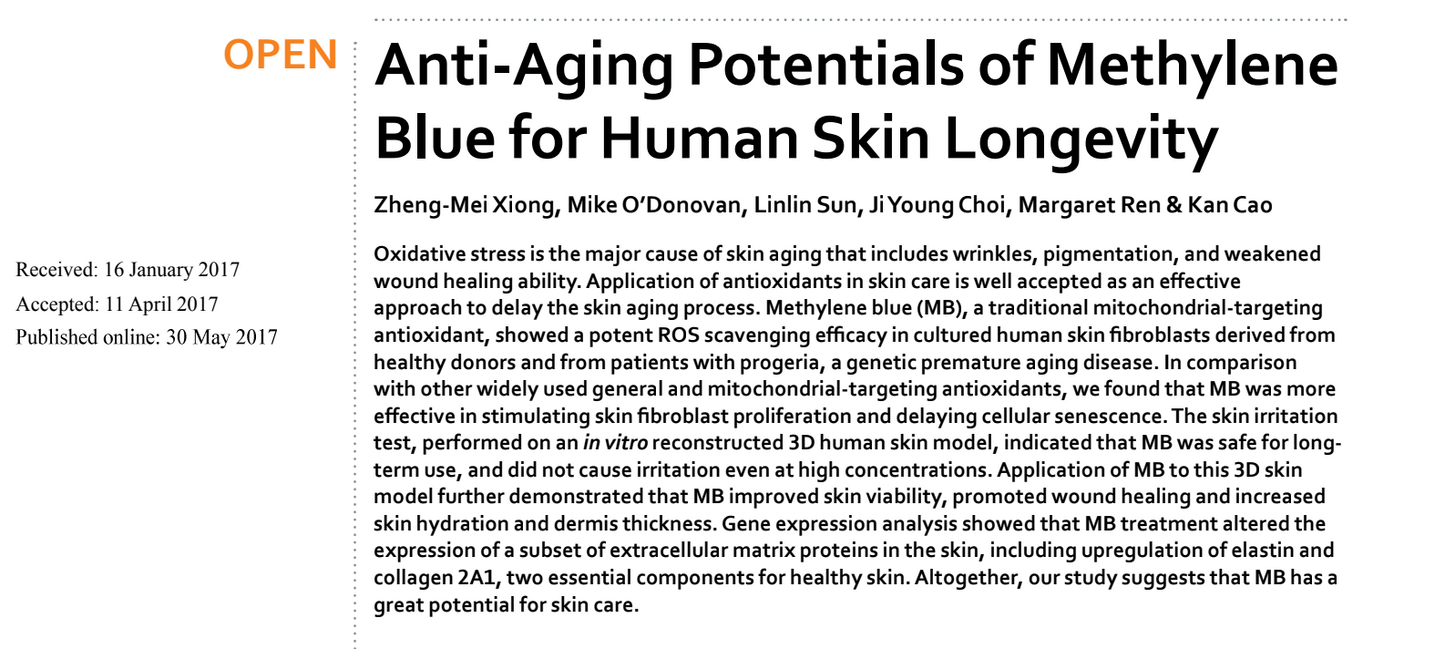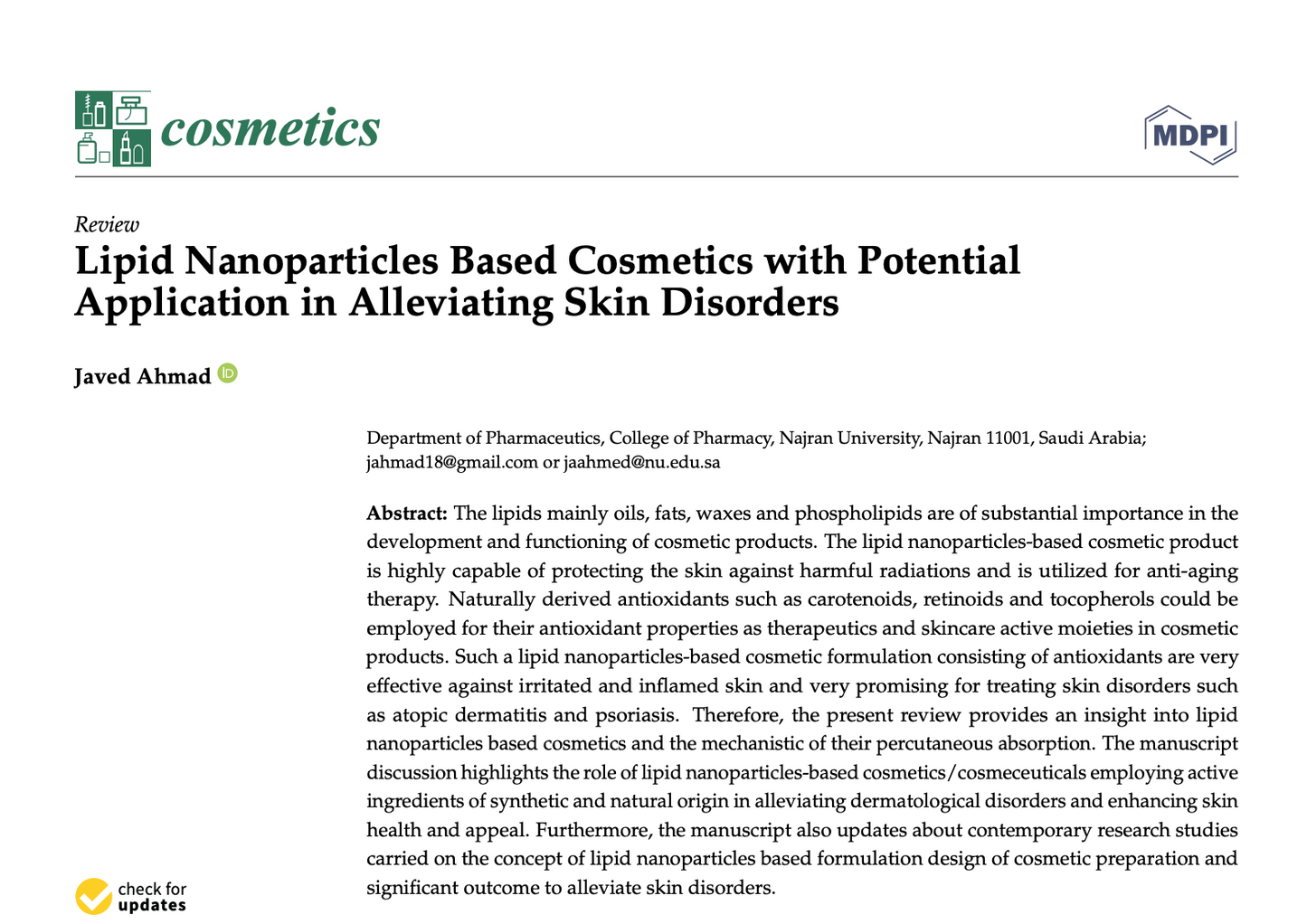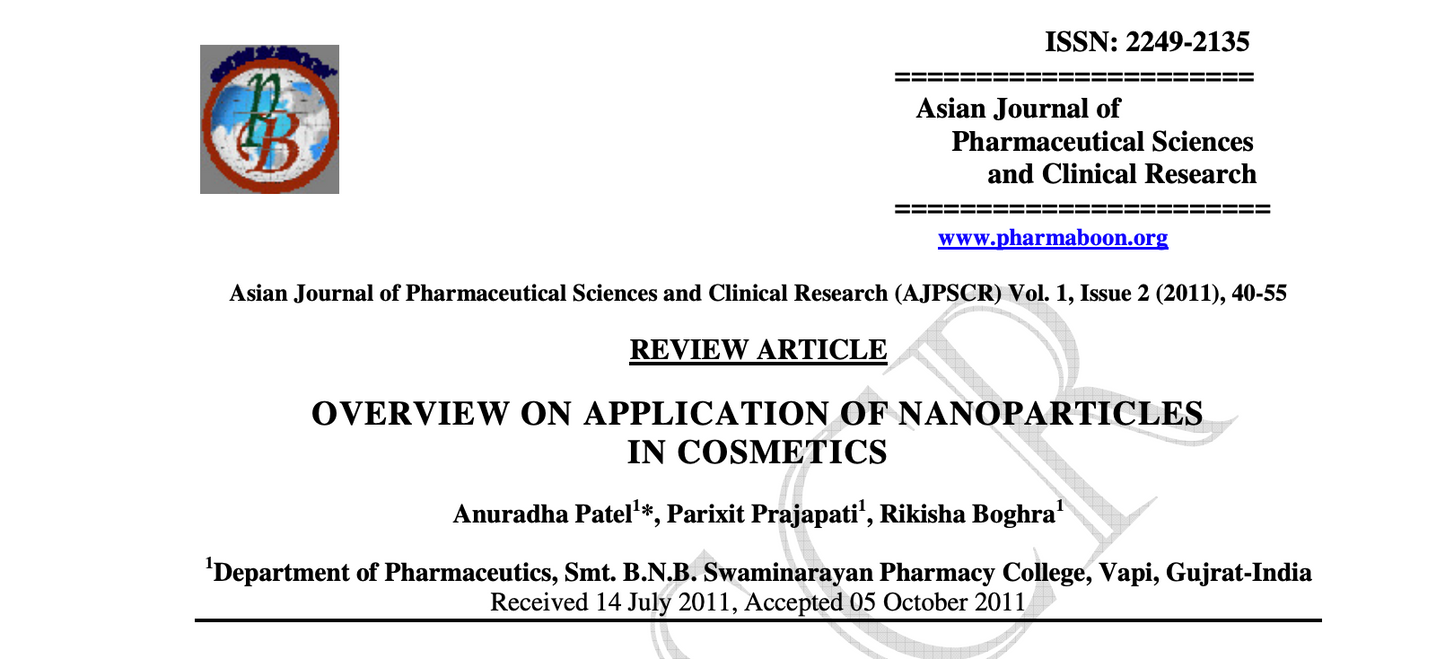Niacinamide (also known as nicotinamide or 3-pyridinecarboxamide) is the physiologically active form of niacin, or vitamin B3. A deficiency in this essential water-soluble vitamin results in pellagra, a nutritional disease with distinct cutaneous manifestations. Since its discovery and isolation, numerous dermatological therapeutic benefits and mechanisms have been attributed to niacinamide when used topically. These include its role as an anti-acne agent, its ability to upregulate epidermal sphingolipid synthesis, and its enhancement of markers of epidermal differentiation and dermal proliferation—contributing to improved stratum corneum barrier function. Niacinamide also helps moderate photoimmunosuppression and the development of associated tumors. More recent evidence suggests...
Plus →
Oxidative stress is the major cause of skin aging that includes wrinkles, pigmentation, and weakened wound healing ability. Application of antioxidants in skin care is well accepted as an effective approach to delay the skin aging process. Methylene blue (MB), a traditional mitochondrial-targeting antioxidant, showed a potent ROS scavenging efficacy in cultured human skin fibroblasts derived from healthy donors and from patients with progeria, a genetic premature aging disease. In comparison with other widely used general and mitochondrial-targeting antioxidants, we found that MB was more effective in stimulating skin fibroblast proliferation and delaying cellular senescence. The skin irritation test, performed...
Plus →
Abstract: The lipids mainly oils, fats, waxes and phospholipids are of substantial importance in the development and functioning of cosmetic products. The lipid nanoparticles-based cosmetic product is highly capable of protecting the skin against harmful radiations and is utilized for anti-aging therapy. Naturally derived antioxidants such as carotenoids, retinoids and tocopherols could be employed for their antioxidant properties as therapeutics and skincare active moieties in cosmetic products. Such a lipid nanoparticles-based cosmetic formulation consisting of antioxidants are very effective against irritated and inflamed skin and very promising for treating skin disorders such as atopic dermatitis and psoriasis. Therefore, the present...
Plus →
The present review aims to study a promising area of Nanoparticles used in various cosmetic products like Deodorant, Soap, Toothpaste, Shampoo, Hair conditioner, Anti-wrinkle cream, Moisturizer, Foundation, Face powder, Lipstick, Blush, Eye shadow, Nail polish, Perfume and After-shave lotion etc. In particular, NLCs have been identified as a potential next generation cosmetic delivery agent that can provide enhanced skin hydration, bioavailability, stability of the agent and controlled occlusion. Nanoparticles are synthesized by various techniques are Sol–gel Method, Vacuum Deposition Method, Ball Milling Method, Pyrolysis etc. Characterization of Nanoparticles is must necessary in order formulate Nanocosmeticeuticals. Many methods are used for...
Plus →







